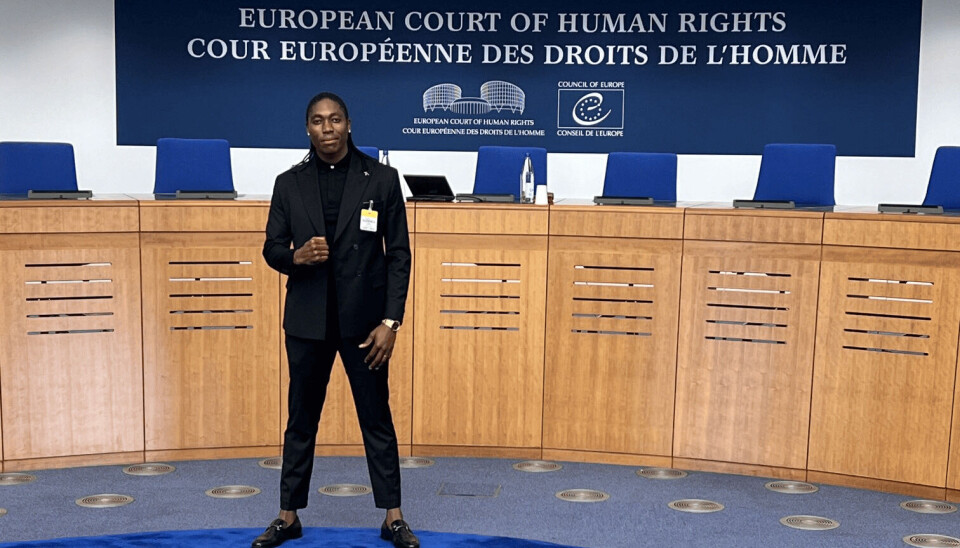Copyright : Re-publication of this article is authorised only in the following circumstances; the writer and Africa Legal are both recognised as the author and the website address www.africa-legal.com and original article link are back linked. Re-publication without both must be preauthorised by contacting editor@africa-legal.com
Caster Semenya finally wins her longest-ever race, as ECHR Grand Chamber delivers historic decision

Yesterday the Grand Chamber of the European Court of Human Rights (ECHR) found in favour of Caster Semenya, following a 15-year legal and personal battle for dignity, equality, and the rights of women in sport.
Yesterday’s long-awaited decision of the European Court of Human Rights in favour of champion middle distance runner Caster Semenya is not just a legal victory but a human one, say Norton Rose Fulbright (NRF) directors Greg Nott and Patrick Bracher.
“This is a resounding victory not only for Caster but for the principles of equality, fairness, and bodily autonomy in international sport,” says Nott, NRF’s Head of Africa Practice, who first met Semenya in 2009, when she was a teenage star, “a world-class athlete with a quiet strength and a storm gathering around her”.
Semenya won her first world championships in the 800m in 2009, then went on to win 2012 and 2016 Olympic gold medals, and further world titles in 2011 and 2017.
A massive global star, her career was cut short when World Athletics introduced controversial rules in 2018 requiring athletes like Semenya, who had previously cleared sex testing in 2009 but has naturally higher testosterone levels due to a genetic condition, to take medication suppressing testosterone in order to compete.
Initially World Athletics new rules targeted only the women’s middle distance events, where Semanya was a dominant star. In 2019 the Swiss-based Court of Arbitration for Sport found the rules were discriminatory, but controversially still upheld them as being “necessary” to protect “the integrity of female athletics”.
In 2023 the rules were expanded to cover all female track and field events.
The Grand Chamber of the European Court of Human Rights (ECHR), whose decisions cannot be appealed, yesterday found Switzerland failed to properly scrutinise Semenya’s human rights concerns in her prior legal challenges before the Court of Arbitration for Sport and the Swiss Federal Supreme Court. It concluded Semenya was denied a fair hearing and that the disproportionate burden placed on her by World Athletics' regulations violated her fundamental rights.
“The Court recognised the imbalance that athletes like Caster face when challenging powerful governing bodies,” says Nott, lead counsel in an international team that included Toronto’s Tyr LLP and London’s Cloisters Chambers. “It is a reminder that all sportspeople are entitled to fundamental human rights, and those rights must be protected.”
Semenya has long argued that the World Athletics regulations — which required women with differences of sex development (DSD) to undergo invasive medical treatment in order to compete — were discriminatory and harmful.
Responding to yesterday’s ECHR decision, she said: “I have waited 15 long years for this judgment. Today, my patience in this journey has been rewarded with a result that will pave the way for all athletes’ human rights to be protected. I have given up what I wanted in the hope that others may have what they need. I hope this victory will inspire young women to be and to accept themselves in all their diversity.”
The judgment is final and binding and is expected to set an important precedent for athlete rights globally, particularly where governance of sport intersects with human rights obligations.
“The judgment handed down by the Grand Chamber of the European Court of Human Rights affirms what we have believed from the very beginning — that the dignity, rights, and humanity of athletes must be upheld, no matter how powerful the institutions they face,” says Bracher. “Representing Caster has been an honour of a lifetime. Her strength, humility, and unwavering resolve in the face of injustice have inspired us every step of the way.”
This case has never just been about sport, he adds, but fairness, autonomy, and the “courage to challenge systems that fail to protect the most vulnerable”.
